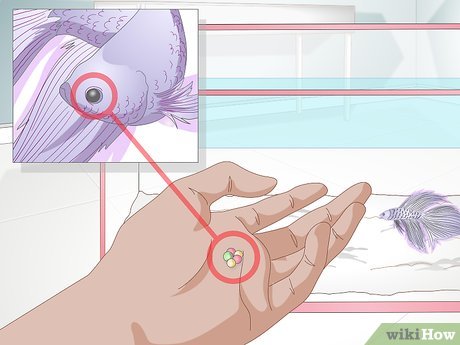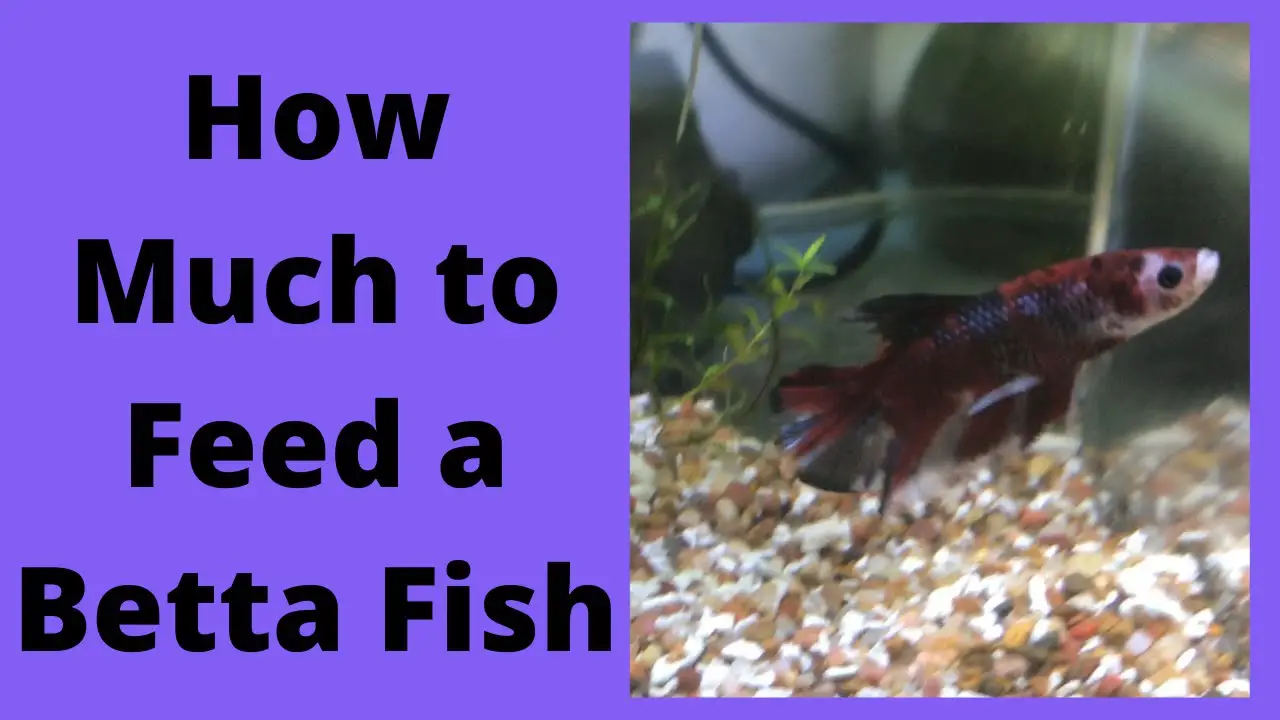Originally posted on May 14, 2023 @ 10:00 am
Last Updated on 5 months by admin
Betta fish are a popular choice for aquarium enthusiasts, but many new owners are unsure of how much food to give their fish. Overfeeding can lead to health problems and a dirty tank, while underfeeding can leave your fish malnourished and unhappy. So, how many flakes should you feed your betta fish?
The answer may surprise you. While there are general guidelines on how much to feed your fish, the exact amount will depend on several factors, including the size of your fish, the temperature of the water, and their activity level. In this article, we’ll explore the best practices for feeding your betta fish and provide you with the knowledge you need to keep your fish happy and healthy.
Betta fish should be fed 2-3 small flakes or pellets twice a day. Overfeeding can lead to obesity and digestive problems, while underfeeding can cause malnourishment and health issues. It’s important to monitor your Betta’s eating habits and adjust the amount accordingly. Remember to remove any uneaten food after a few minutes to avoid polluting the water.

How Many Flakes to Feed Betta Fish?
Feeding betta fish can be a bit tricky, especially when it comes to determining the appropriate amount of food to give them. Betta fish are carnivorous, and they need a well-balanced diet to stay healthy and happy. In this article, we’ll answer the question “How many flakes to feed betta fish?” and provide some tips on feeding your betta fish.
1. Understanding the Nutritional Needs of Betta Fish
Betta fish require a diet that is high in protein and low in carbohydrates. They are carnivorous and need meat-based food to thrive. Commercially available betta fish flakes are a good option, as they contain a balanced mix of protein and other nutrients that betta fish need.
When choosing flakes for your betta fish, it is important to check the ingredients list. The flakes should contain a high percentage of protein, and the first ingredient should be a type of fish or shrimp. Some flakes may also contain fillers like wheat or corn, which are not ideal for betta fish.
The Benefits of Feeding Betta Fish Flakes:
- Convenient and easy to use
- Contain a balanced mix of nutrients
- Available in different varieties to suit your betta’s needs
Flakes Vs Other Types of Betta Fish Food:
Compared to other types of betta fish food, flakes are a convenient option that can be easily measured and stored. They are also less messy than live or frozen food, which can be difficult to handle and may require special storage.
However, some betta fish enthusiasts prefer feeding their fish with live or frozen food, as it is more natural and provides a wider variety of nutrients. Live food like brine shrimp or bloodworms can be a great supplement to a betta’s diet, but they can be expensive and require more effort to acquire and prepare.
2. How Much Flakes to Feed Betta Fish?
The amount of flakes you should feed your betta fish depends on several factors, including the age, size, and activity level of your fish. As a general rule, you should feed your betta fish 2-3 flakes per meal, twice a day.
It is important not to overfeed your betta fish, as this can lead to health problems like obesity and constipation. Betta fish have small stomachs and can only eat a small amount of food at a time. Overfeeding can also lead to water quality issues, as uneaten food can pollute the water and create a breeding ground for harmful bacteria.
How to Determine the Right Amount of Flakes to Feed Betta Fish:
One way to determine the right amount of flakes to feed your betta fish is to observe how much they eat in one feeding session. Sprinkle a few flakes into the water and watch as your betta fish eats them. If they eat all the flakes within a few minutes, you can increase the amount of flakes slightly. If there are flakes left over after a few minutes, you should decrease the amount of flakes you give them.
Another way to determine the right amount of flakes is to use a feeding ring or a small container to measure the amount of flakes you give your betta fish. This can help you avoid overfeeding and ensure that your betta fish gets the right amount of food.
3. Conclusion
In conclusion, feeding betta fish requires some careful consideration. Betta fish need a high-protein, meat-based diet to stay healthy and happy. Flakes are a convenient and easy option for feeding betta fish, but it is important to choose flakes that contain a balanced mix of nutrients and avoid those that contain fillers like wheat or corn. When feeding your betta fish, it is important not to overfeed and to monitor how much they eat in one feeding session. With a little bit of effort and attention, you can keep your betta fish happy and healthy for years to come.
Frequently Asked Questions
How many flakes should I feed my Betta fish?
When it comes to feeding Betta fish, it’s important to remember that they have small stomachs and can only eat a limited amount of food. Overfeeding can lead to health problems, so it’s best to be cautious. As a general rule, you should feed your Betta fish no more than 2 to 3 flakes per feeding, and no more than twice a day.
It’s also important to consider the quality of the flakes you’re feeding your Betta fish. Look for high-quality flakes that are specifically designed for Betta fish, as they will contain all the necessary nutrients your fish needs to stay healthy.
Can Betta fish eat other types of food besides flakes?
Yes, Betta fish can eat other types of food besides flakes. In fact, a varied diet can be beneficial for their health. You can supplement their diet with frozen or freeze-dried foods such as bloodworms, brine shrimp, or daphnia. These foods should be thawed or rehydrated before feeding to ensure your Betta fish can digest them properly.
It’s important to note that while Betta fish can eat other types of food, flakes should still make up the majority of their diet since they contain all the necessary nutrients. You should also be careful not to overfeed your Betta fish, no matter what type of food you’re offering.
How do I know if I’m feeding my Betta fish the right amount?
One way to know if you’re feeding your Betta fish the right amount is to observe their behavior after feeding. If they eat all the flakes within a few minutes and don’t appear bloated or lethargic, then you’re probably feeding them the right amount. However, if there are flakes left over or your Betta fish appears bloated or sluggish, you may be overfeeding them.
It’s also important to remember that every Betta fish is different, and their dietary needs may vary. If you’re unsure about how much to feed your Betta fish, consult with a veterinarian or a knowledgeable pet store employee.
How often should I feed my Betta fish?
Betta fish should be fed small amounts of food two to three times a day. Overfeeding can lead to health problems, so it’s important not to feed them too much. If your Betta fish is not eating all the food within a few minutes, you may be feeding them too much. In this case, reduce the amount of food you’re offering and monitor their behavior.
It’s also important to note that Betta fish can go for short periods of time without food, so it’s okay to skip a feeding if necessary. However, you should not skip feedings regularly, as this can lead to malnourishment and health problems.
What should I do if my Betta fish is not eating?
If your Betta fish is not eating, there may be several reasons why. It could be due to stress, illness, or a change in their environment. It’s important to monitor their behavior closely and consult with a veterinarian if you suspect an underlying health issue.
In the meantime, you can try offering them a different type of food or adjusting their feeding schedule. If your Betta fish is still not eating, you may need to try a different approach or seek professional help.

How Much to Feed a Betta Fish
In conclusion, feeding your betta fish is not as simple as just throwing in a few flakes. It’s important to understand the appropriate amount of food to give your betta fish to keep them healthy and happy.
Firstly, it’s important to understand that betta fish have small stomachs and can only eat a small amount of food per feeding. Overfeeding can lead to obesity and other health problems.
Secondly, it’s recommended to feed your betta fish 2-3 small meals per day, with each meal consisting of 2-3 flakes. This will ensure that your betta fish is receiving the appropriate amount of food without being overfed.
Lastly, it’s important to observe your betta fish’s behavior and adjust their feeding schedule accordingly. If they are not eating all of their food or seem lethargic, it may be necessary to decrease their feeding amount or frequency. By following these guidelines, you can ensure that your betta fish is receiving the appropriate amount of food to keep them healthy and happy.
